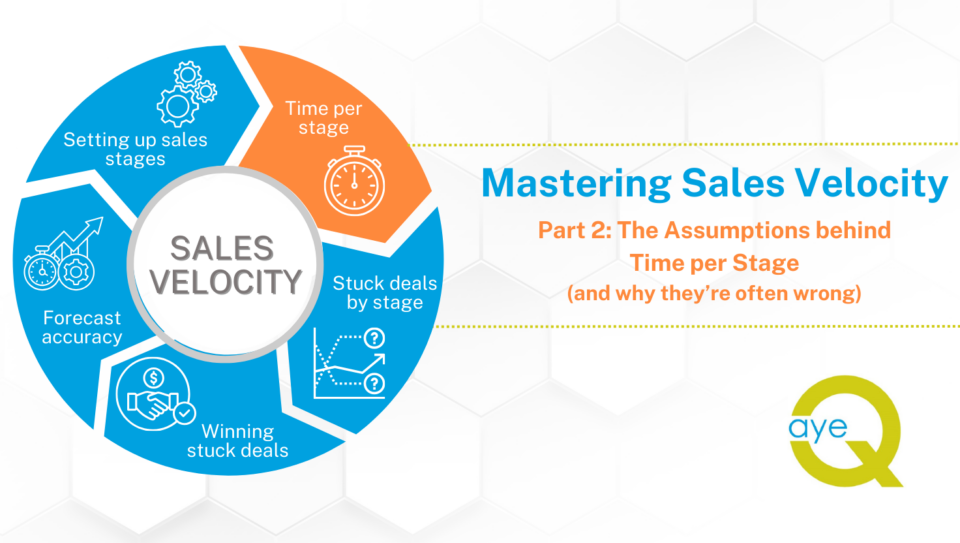Re-Thinking Time Per Stage
Most B2B companies set expectations for how long deals should stay in each sales stage, but these assumptions are often based on flawed logic. Many organizations simply pick an arbitrary length of time per stage — such as 30 days in proposal, 60 days in negotiation—without considering whether those benchmarks are actually predictive of success. Others rely on historical averages across all deals, which can be misleading and create inaccurate forecasts. A more intelligent approach is to use data from successful deals to establish realistic stage timelines.
Editor’s Note: This is Part 2 of a 5-Part Series about B2B Sales Velocity.
Why Arbitrary Stage Timelines Fail
- Different revenue streams—new logos, upsell, cross-sell, enterprise, SMB, and geography-based deals—follow unique sales patterns that generic benchmarks fail to capture.
- Historical averages across all deals often mix slow and fast-moving opportunities, skewing insights.
- Setting “stuck” thresholds based on successful deal velocity is more reliable than arbitrary numbers.
A Smarter Approach: Data-Driven Stage Timelines
Rather than relying on arbitrary numbers or broad averages, high-performing RevOps teams analyze stage velocity in won deals to set realistic expectations. This involves:
- Segmenting stage timing benchmarks by deal type, geography, and revenue stream to reflect actual sales motion.
- Defining ‘stuck’ deals based on multiples of the ideal stage length (e.g., if won deals spend 30 days in Proposal, anything past 60 days is flagged as at-risk).
- Using dynamic adjustments—continuously refining stage expectations as market conditions, deal complexity, and sales strategies evolve.
What This Means for Sales Execution
By shifting from guesswork to data-driven stage timing, sales teams can:
- Identify potential problem deals before they derail forecasts.
- Optimize pipeline reviews to focus on high-velocity, winnable deals.
- Set realistic expectations with leadership on how long deals should actually take based on past successful sales cycles.
Ready to advance on to how long you should plan for deals to stay in each B2B Sales Stage? Check out Part 3 in our Series: Flawed Assumptions About Sales Stage Times.
